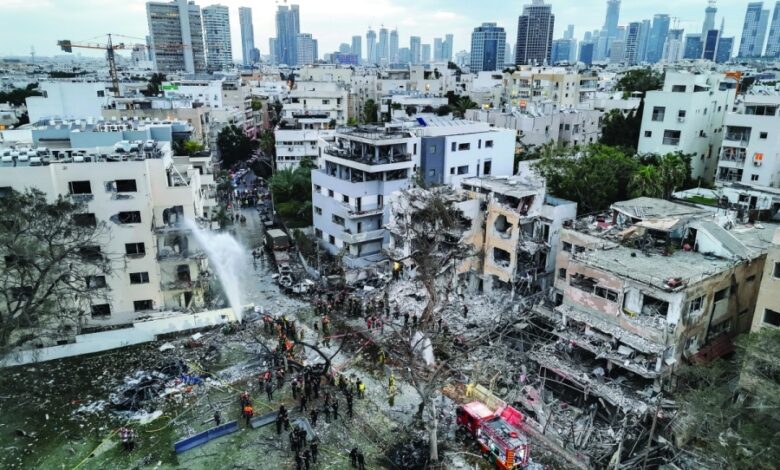
As Israel’s open war with Iran enters an unprecedented phase, the financial and logistical burden of missile interception is surfacing as a strategic vulnerability. With hundreds of Iranian missiles and drones launched daily, Israel’s multi-layered air defense system — once hailed as impenetrable — is showing signs of stress.
Israel deploys a range of interceptors — the Iron Dome (Tamir), David’s Sling (Stunner), Arrow 2 and 3, and U.S.-supplied THAAD batteries. Each is effective but costly and slow to produce.
For example, a single Iron Dome interceptor costs around $50,000, while David’s Sling and Arrow 3 missiles range from $1 million to $4 million. By contrast, Iranian missiles such as the Fateh-110 and Zolfaghar cost as little as $110,000 to $150,000, reports Al-Rai daily.
This cost imbalance favors Iran. A single Iranian barrage may cost less than $1 million, while Israel might need to spend five to ten times that to defend against it. In a prolonged war of attrition, Tehran can maintain pressure while Tel Aviv depletes its high-cost defense stockpiles.
U.S. President Donald Trump revealed that Washington had recently resupplied Israel with Iron Dome missiles even before the war officially escalated, underlining the depth of U.S.-Israel coordination.
The U.S. maintains an emergency munitions stockpile (WRSA-I) in Israel, which Tel Aviv can access with Washington’s approval. However, this support highlights dependency. Without sustained U.S. assistance, Israel’s ability to intercept incoming threats could falter.
The rate of consumption is staggering. Reports suggest over 1,000 projectiles were fired at Israel within a week. Maintaining interception rates of 60–90% could require hundreds of interceptors daily—amounting to tens of millions of dollars per day. Manufacturing constraints further complicate replenishment, especially for complex systems like Arrow 3, which are not mass-produced.
Analysts warn that Israel’s defense doctrine, built on technological superiority, was never intended for long wars of attrition. If missile stocks are depleted, the risk of strikes bypassing defenses grows — not due to system failure, but due to simple shortages. This could erode Israel’s deterrence and public confidence.
Uzi Rubin, former head of Israel’s missile defense program, once cautioned: “There is no impenetrable, limitless shield.” That warning is now being tested.
As production lags, costs soar, and political dependency grows, Israel’s strategic edge may be undermined—not by the missiles it intercepts, but by those it can no longer afford to stop.



























